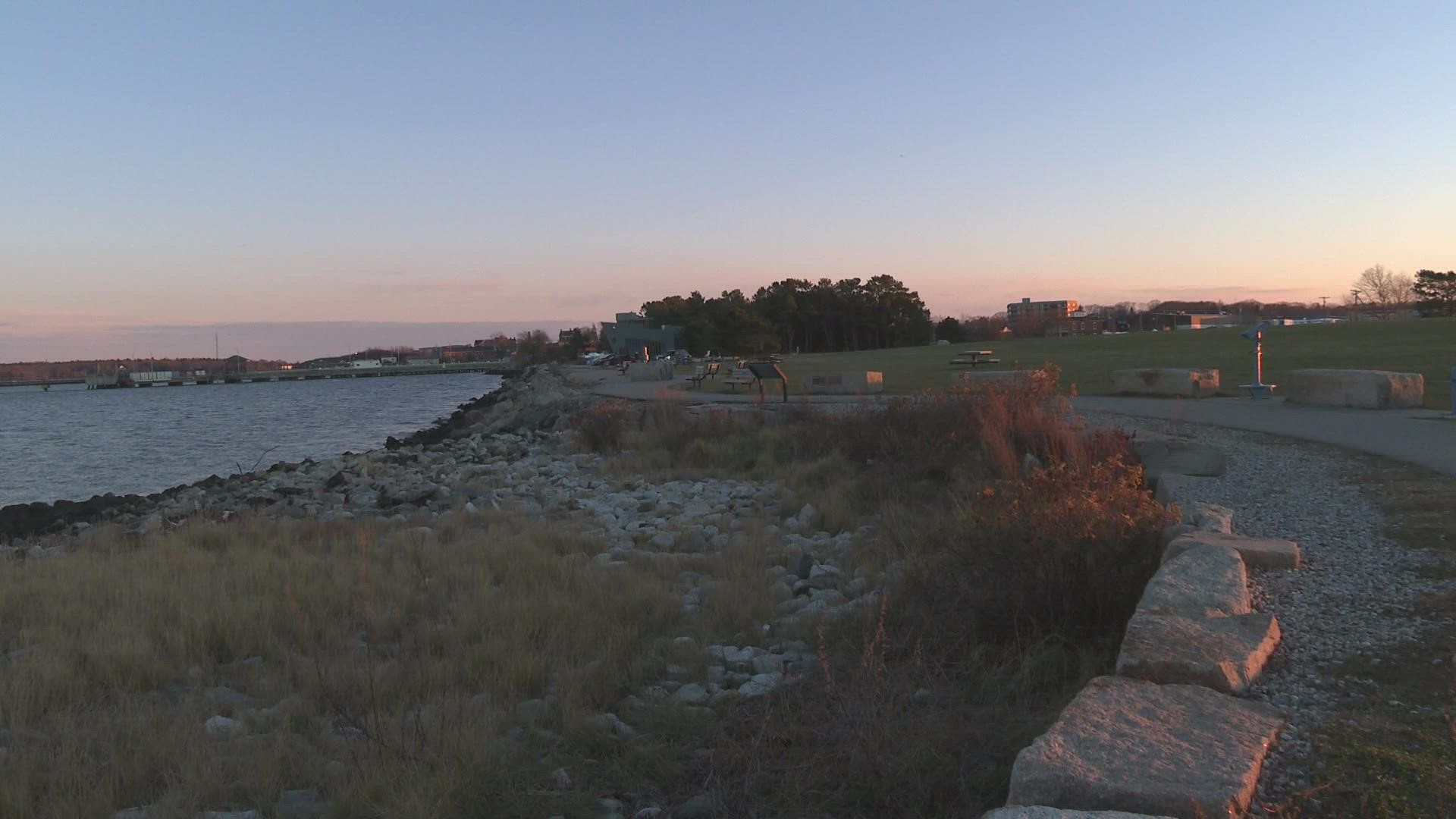MAINE, USA — Ten coastal communities in southern Maine are working together to reduce the impacts of flooding caused by climate change.
The National Fish and Wildlife Foundation announced it awarded the Greater Portland Council of Governments (GPCOG) 250,000 for the regional initiative.
These coastal municipalities are looking to implement natural solutions to help prevent greater impacts of flooding created by rising sea levels.
"It's going to really help support and provide a lot of resources to the region," Sara Mills-Knapp, sustainability program manager at GPCOG, said.
These funds, along with an additional $250,000 from donations, grants, and funding from the Gulf of Maine Research Institute, will go towards a two-year project.
That project aims to engage people whose livelihoods are affected by coastal flooding and help community volunteers, municipal staff, elected officials, and community leaders plan for nature-based solutions to flooding.
Participants will learn about data collection and analysis, research, and best practices so they can develop projects that are ready to be designed.
"I think supporting now is really the time to do planning to ensure that our coast is resilient economically, environmentally, and socially to the coming impacts of the climate crisis," Mills-Knapp said.
Natural solutions look to use the power of nature to act as a defense system against flooding. Examples in Maine are salt-marsh restoration, rain gardens, parks, and open spaces, beach dune restoration, and shoreline protection using natural materials. Natural solutions can be more sustainable and less expensive than hard infrastructures, such as sea walls.
Mills-Knapp said Bug Light Park in Portland, which has rocks along its shoreline, and a large grassy space, is an example of what a nature-based solution looks like in regards to reducing flooding impacts.
"Creating park space or space that can be flooded so that there's not huge impacts to infrastructure. Or doing living shorelines. So solutions that are really focused on using nature as a way to absorb some of the impact from sea level rise," Mills-Knapp said.
The municipalities involved in the project include Freeport, Falmouth, Cumberland, Yarmouth, Cape Elizabeth, Scarborough, Portland, South Portland, Chebeague Island, and Long Island.
The Gulf of Maine Research Institute will work closely with GPCOG on the project.
"Nature is really our best protector. It absorbs the water, it filters the water, it can break the damage of waves as they're coming onto the beach before it gets to where infrastructure is," Gayle Bowness, Municipal Climate Action Program anager for the Gulf of Maine Research Institute, said.
Bowness added the time to act is now and hopes planning and action can make an impact in Maine soon.
"Using nature as that solution, we're really establishing that front line of protection," Bowness said.
The National Fish and Wildlife Foundation will invest $39.5 million nationally in 49 projects designed to strengthen natural infrastructure to protect coastal communities and enhance fish and wildlife habitat.

